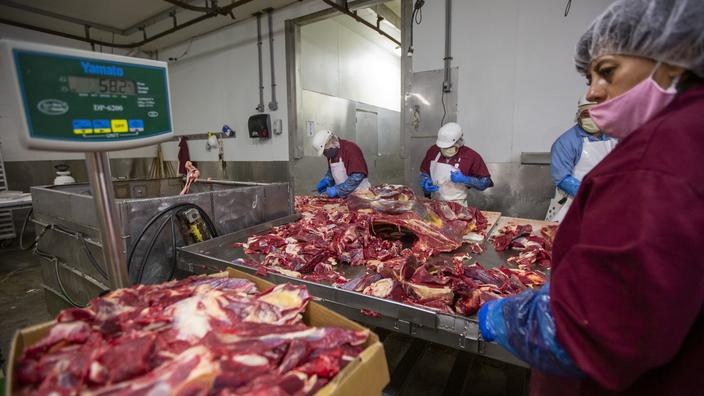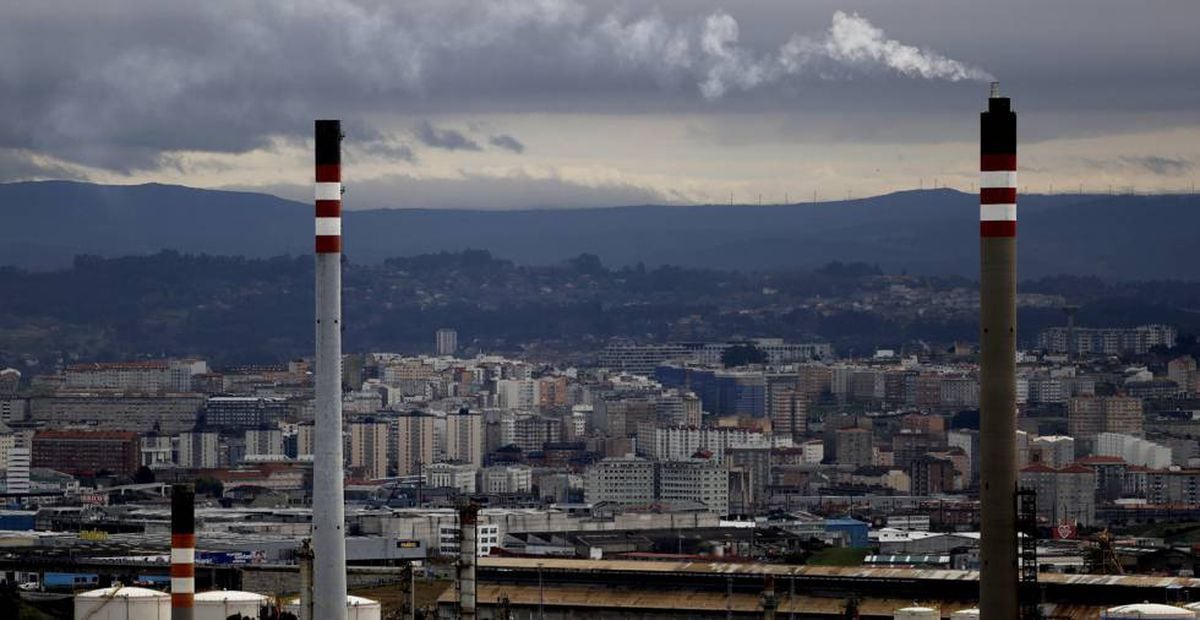The greenhouse gas emissions of European giants of the meat and dairy industry continue to increase despite the climate crisis, denounces Monday December 13 an NGO report which deplores what it describes as "
greenwashing
" particularly polluting sectors. In this report which calls on governments to '
regulate agribusiness
', the Institute for Agriculture and Trade Policy (IATP) reviews 35 of the largest companies in the sector headquartered in the European Union, the UK and in Switzerland, examining their possible climate plans and the emissions encompassing their entire supply chain, in particular livestock, a major emitter of greenhouse gases.
Read alsoVegetable milk and artificial meat ignite investors
According to their analyzes, these companies were responsible for 7% of EU emissions in 2018 and the emissions of the top 20 exceed those of the Netherlands.
The report focuses in particular on ten large companies, with more or less precise climate objectives.
As a result, for seven of them, over two years, absolute emissions have increased.
For example, on the meat processing side, between 2016 and 2018, + 45% for the Irish ABP and + 30% for the German Tönnies;
and on the milk side, between 2015 and 2017, + 15% and + 30% respectively for the French Danone and Lactalis.
"
The carbon footprint of the European milk and meat giants compete with that of the fossil fuel giants, but they continue to act with impunity
", denounced Shefali Sharma, European director of the IATP in a press release.
And "
the handful of companies that have climate plans rely on accounting tricks, greenwashing
(or facade greening, editor's note)
and the questionable effects of offsets to distract attention from the fundamental changes needed to reduce emissions, all by shifting a large part of the costs and risks to the farmers
”who provide them, she added.
The concept of carbon intensity used
The report denounces in particular the use by these companies of the concept of carbon intensity, that is to say the emissions per liter of milk or kilogram of meat, which can decrease without reducing absolute emissions because at the same time production and the number of cattle are increasing.
Of the 20 companies analyzed, only four (Arla, Danone, FrieslandCampina and Nestlé) report the total emissions of their supply chain and only three (Nestlé, FrieslandCampina and ABP) have announced their intention to reduce their absolute emissions by including their chain. supply, according to the text.
But "there is
no public evidence to indicate that any of these companies are planning to fundamentally change their model of large-scale livestock production and processing
."
Read alsoClimate warming: will entire countries disappear under water by 2050?
The IATP also denounces the attempt of these large companies to deflect the responsibility both on the breeders and on the European consumers.
Even if the latter consumed less meat and milk, this would have "
limited effects
" in reducing emissions from European livestock farming due to the large share of exports, the report notes.








